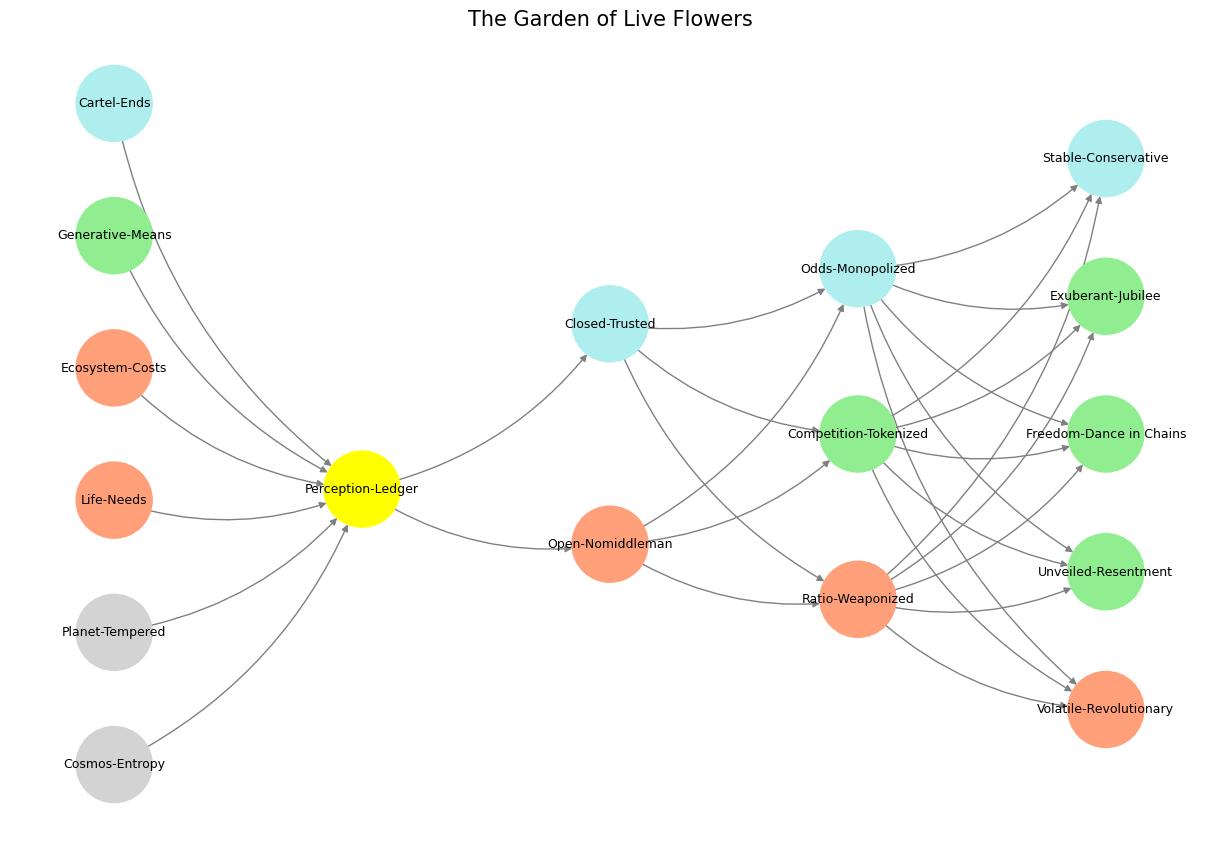Orient#
Absolutely! Drawing parallels between this neural network framework and the thematic elements of Through the Looking-Glass would be a fascinating challenge. The structure you’ve laid out resonates strongly with Lewis Carroll’s interplay of logic, inversion, and layered realities. Here’s how we could align these layers and elements with Carroll’s work:
Fig. 39 This was a fork in the road for human civilization. Our dear planet earth now becomes just but an optional resource on which we jostle for resources. By expanding to Mars, the jostle reduces for perhaps a couple of centuries of millenia. There need to be things that inspire you. Things that make you glad to wake up in the morning and say “I’m looking forward to the future.” And until then, we have gym and coffee – or perhaps gin & juice. We are going to have a golden age. One of the American values that I love is optimism. We are going to make the future good.#
1. World Layer (Cosmos-Entropy to Cartel-Ends)#
Through the Looking-Glass presents a world that mirrors and inverts the familiar (e.g., the chessboard landscape, where directionality and logic are reversed).
This layer’s polytheistic nodes (e.g., Olympus, Kingdom) can be mapped to Carroll’s whimsical anthropomorphism of characters like the Red Queen and the White Queen, who embody cosmic forces governing the chessboard world.
There’s one other flower in the garden that can move about like you
– the Rose
2. Perception Layer (Perception-Ledger)#
Alice’s journey hinges on her perception—what she sees and how she interprets the nonsensical logic around her.
The yellow node aligns with the luminosity of revelation in Carroll’s world. The ledger captures the rules and laws Alice must decipher, much like the chess game’s constraints that shape her path.
3. Agency Layer (Open-Nomiddleman, Closed-Trusted)#
The dichotomy here reflects Alice’s agency versus the control imposed by the queens and other characters.
The tension between Open-Nomiddleman (freedom, direct action) and Closed-Trusted (adherence to authority, like the chess rules) mirrors Alice’s struggle to assert her identity within an externally controlled system.
4. Generative Layer (Ratio-Weaponized, Competition-Tokenized, Odds-Monopolized)#
This layer’s dynamics reflect the competitive, rule-bound nature of Carroll’s chessboard, where progress (e.g., Alice becoming a queen) is tokenized and contingent on following preordained moves.
The weaponization of logic and odds is evident in exchanges like the Tweedle twins’ debate and the White Knight’s inventions, which showcase absurdity as a generative, almost adversarial, force.
5. Physical Layer (Volatile-Revolutionary to Stable-Conservative)#
The physicality of Alice’s journey—jumping streams, encountering physical manifestations of abstract ideas (like Humpty Dumpty or the Jabberwock)—maps beautifully onto this layer.
Volatile-Revolutionary and Unveiled-Resentment align with moments where Alice defies expectations, while Stable-Conservative represents the underlying order of the chess game she ultimately completes.
Color Mapping and Symbolism#
The colors you’ve assigned could be interpreted as follows:
Yellow: Illumination and clarity, akin to Alice’s moments of insight.
Paleturquoise: The cool logic of Carroll’s inversions.
Lightgreen: Growth and transformation, reflecting Alice’s journey toward self-realization.
Lightsalmon: The tension and sacrifice inherent in navigating a world that resists linear understanding.
Title and Trump Node#
The title you’ve chosen, focusing on “Unveiled-Resentment,” resonates with Through the Looking-Glass’s recurring theme of frustration when logic fails or reality shifts unpredictably. The Trump node could symbolize a pivotal disruption—a moment where established dynamics are flipped, much like Alice crowning herself in a paradoxical game of agency and control.
Show code cell source
import numpy as np
import matplotlib.pyplot as plt
import networkx as nx
# Define the neural network fractal
def define_layers():
return {
'World': ['Cosmos-Entropy', 'Planet-Tempered', 'Life-Needs', 'Ecosystem-Costs', 'Generative-Means', 'Cartel-Ends', ], # Theomarchy, Mortals, Fire
'Perception': ['Perception-Ledger'], # God
'Agency': ['Open-Nomiddleman', 'Closed-Trusted'], # Evil & Good
'Generative': ['Ratio-Weaponized', 'Competition-Tokenized', 'Odds-Monopolized'], # Dynamics, Compromises
'Physical': ['Volatile-Revolutionary', 'Unveiled-Resentment', 'Freedom-Dance in Chains', 'Exuberant-Jubilee', 'Stable-Conservative'] # Values
}
# Assign colors to nodes
def assign_colors():
color_map = {
'yellow': ['Perception-Ledger'], # , Judgement Day, Key
'paleturquoise': ['Cartel-Ends', 'Closed-Trusted', 'Odds-Monopolized', 'Stable-Conservative'], # Slavery, Colonialism, Worker
'lightgreen': ['Generative-Means', 'Competition-Tokenized', 'Exuberant-Jubilee', 'Freedom-Dance in Chains', 'Unveiled-Resentment'], # Das Kapital, Frankenstein, AI
'lightsalmon': [
'Life-Needs', 'Ecosystem-Costs', 'Open-Nomiddleman', # Ecosystem = Red Queen = Prometheus = Sacrifice
'Ratio-Weaponized', 'Volatile-Revolutionary'
],
}
return {node: color for color, nodes in color_map.items() for node in nodes}
# Calculate positions for nodes
def calculate_positions(layer, x_offset):
y_positions = np.linspace(-len(layer) / 2, len(layer) / 2, len(layer))
return [(x_offset, y) for y in y_positions]
# Create and visualize the neural network graph
def visualize_nn():
layers = define_layers()
colors = assign_colors()
G = nx.DiGraph()
pos = {}
node_colors = []
# Add nodes and assign positions
for i, (layer_name, nodes) in enumerate(layers.items()):
positions = calculate_positions(nodes, x_offset=i * 2)
for node, position in zip(nodes, positions):
G.add_node(node, layer=layer_name)
pos[node] = position
node_colors.append(colors.get(node, 'lightgray')) # Default color fallback
# Add edges (automated for consecutive layers)
layer_names = list(layers.keys())
for i in range(len(layer_names) - 1):
source_layer, target_layer = layer_names[i], layer_names[i + 1]
for source in layers[source_layer]:
for target in layers[target_layer]:
G.add_edge(source, target)
# Draw the graph
plt.figure(figsize=(12, 8))
nx.draw(
G, pos, with_labels=True, node_color=node_colors, edge_color='gray',
node_size=3000, font_size=9, connectionstyle="arc3,rad=0.2"
)
plt.title("The Garden of Live Flowers", fontsize=15)
plt.show()
# Run the visualization
visualize_nn()


Fig. 40 Terra, Celsius, FTX. Contemplate the following: world (twitter), money (terra), bank (celsius), exchange (ftx), yields (hedgefunds). IT’S A REALLY, surprisingly user-friendly experience,” says Stephen Askins, a shipping lawyer, of his interactions with the Houthis, the militia that has been attacking commercial ships in the Red Sea for more than a year. “You write to them, respectfully. They write back, respectfully, and wish you a happy passage.” Source: Economist#
Entropy, Gravity: Founded in Berkeley & setup in Hongkong -> Bahamas -> US?
Gate: everyone is within the gates, perfect information, fixed odds
Coin toss, Dice roll, Roulette spin, Bespoke regulation?
Patterns: Obsessed with risk, solving puzzles, Maths from MIT
Key: only you are in and others speculate, asymmetric information, wild odds
Poker, Blockchain, Untrusted (Sam Blankman-Fried “sold” trust instead of openness)?
Connotation: Got kapital from family & later market
Entrants: with their exits and entrances, uncertain odds
Horse racing, DC regulation would give access to Wallstreet?
Interaction: US-Japan arbitrage on crypto pricing
Stable-Diffusion: weaponized, tokenized, monopolized access-to-key, conditional odds
Red Queen, Exchanges, FTX (nested within Alameda; same people; monopoly-delusion)
Tendency: Innocuous name: Alameda Research vs. FTX
Optimization: volatility, uncertainty, freedom, certainty, stability
Victorian vs. Coen Brothers, Morality vs. Aesthetics, Teleology vs. Eternal Return
odds ~ resources ~ tokens
Fixed for Bitcoin
Out of thinair for FTX
Alameda borrows from FTX with FTT as collateral (when lenders test the waters out of suspicion)
Then Sam Bankman-Fried becomes JP-Morgan of crypto
Crypto-bro of last resort
Bailing out the ecosystem
Instead of going into survival mode
“TO DEMAND moral purpose from the artist is to make him ruin his work,” said Goethe. Once, I would have defended that statement as if it were an article of religion. Now, having reached the end of my own brief memoir, I find the Victorian in me will not be satisfied without a moral—or perhaps, it is fairer to say, a conclusion. And since I am writing this to please no one but myself, a conclusion is what I will damn well write.”
Excerpt From
The Various Flavors of Coffee
Anthony Capella
https://books.apple.com/us/book/the-various-flavors-of-coffee/id420768595
This material may be protected by copyright.
Layers/colors:
Grey/Cambridge: Aesthetic (100%)
Yellow/Wallstreet: Instant Gratification
Salmon/BayArea: Bracing for Worthy-Adversary
Paleturquoise/Oxford: Secured Cartel (Might makes right)
Lightgreen/LSE: Optimization, Morality, Teleology (5%-95%)

